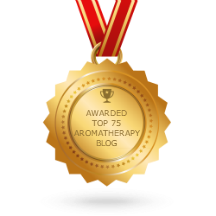We look forward to your questions each Monday night at 8:00
CDT during Mondays with Marge on our Facebook page.
Tiffany posed a question we often encounter, which is not
surprising as online there is very little information or misinformation about
the topic of “aging essential oils.”
Tiffany: I'd like to know more about
intentionally aging EOs. We know that some essential oils, like citruses,
degrade over time while other EOs improve with age. So let's say someone wanted to intentionally
age a suitable essential oil. Which oils would you recommend? Any precautions (or
other recommendations) we should be aware of?
Marge: Great
question, Tiffany... and we have had to do that to some oils that had the
"still note" when received. We knew that in 3 months it would be fine,
but we were out of stock and people wanted the oil NOW!
Marge: First of all, how do you "age" an oil or how do you protect it from aging? Oxygen prematurely ages an oil. To preserve essential oils, we float our "OxygenBarrier," (a blend of nitrogen and other inert gasses, heavier than air) on top of our bulk oils to prevent the EO from coming into contact with oxygen in the air. That extends their shelf life.
Marge: First of all, how do you "age" an oil or how do you protect it from aging? Oxygen prematurely ages an oil. To preserve essential oils, we float our "OxygenBarrier," (a blend of nitrogen and other inert gasses, heavier than air) on top of our bulk oils to prevent the EO from coming into contact with oxygen in the air. That extends their shelf life.
Believe it or not, as Tiffany suggests, there truly are
times you would want to intentionally age an essential oil. Case in point, a “too green or too fresh” batch,
newly distilled. (think Spearmint, Peppermint, for example)
I am told that you can buy "bubblers" that will bubble air (or oxygen) through an oil, thus exposing it to oxidation. We don't have one. The trick I am about to describe was taught to me perhaps 12 or more years ago from Deb Shuman of Mint Meadow Country Oils, the first to introduce me to Midwestern Mint. (She has since sold her farm and retired, and I miss her!) She told me that her lovely Peppermint was "too fresh" and not ready to sell. The solution? Pour some, perhaps 8 ounces (?) into a glass beaker. Pour THAT into an empty beaker. (mental image—two kitchen glasses, one half full of water, pour the water back and forth between them, with some vigor.) (Just saw Beverly's blending video. We need to do a video of Jim and I "prematurely aging" an essential oil.)
Pouring the essential oil back and forth from one beaker to another exposes it to a LOT of air, that is, to a lot of oxygen, resulting in oxidization. We do that several times. Let the beaker sit covered loosely with a paper towel. Repeat, until the oil you are “aging" has lost the still note.
I would not recommend doing this to Sandalwood, Cedarwood, Agarwood…or any of the base notes that do improve with age. Let them age in peace!
But if you feel an oil needs a little tweaking, this is a
step you can take to naturally let the still note "air off,” the new
essential oil. And, please note: We only
do this to a few ounces of the oil within large shipment—perhaps 5 to 20 kilos.
We want the balance of the oil to last as long as possible, of course. We just
"age" what we need to make available for retail immediately due to
demand.
(Just a thought, rather than pouring from one beaker to another—is there any reason you could not put 8 oz in a 16 or 32 oz bottle, and either lay it on its side (to expose more to the air) or gently shake or rock? That would also expose it to air. It wouldn’t make sense for Nature’s Gift since we don't reuse our bulk bottles, but at home, this could be a solution.
(Just a thought, rather than pouring from one beaker to another—is there any reason you could not put 8 oz in a 16 or 32 oz bottle, and either lay it on its side (to expose more to the air) or gently shake or rock? That would also expose it to air. It wouldn’t make sense for Nature’s Gift since we don't reuse our bulk bottles, but at home, this could be a solution.
Marge:
We always encourage follow-up questions and Lily submitted a good one along the
same lines.
Lily: Can I please jump
in and ask something I'm also curious about? Hope it's ok.
What is the perfect temperature to store the aging oils? Is keeping them in the fridge for a few years a good idea? The temperature in my house is not stable and I'm afraid it will reflect negatively on the oils.
What is the perfect temperature to store the aging oils? Is keeping them in the fridge for a few years a good idea? The temperature in my house is not stable and I'm afraid it will reflect negatively on the oils.
Marge:
We recommend "cool room temperature," Lily. We try to keep our
workroom/storage room at 68 degrees F... (give or take a few on either side
depending on the Season!)
I don't like the idea of refrigerating the "long-lived oils"... but it might be better than storing in a room with wide ranges of temperature. Not sure if that answers your question?
I don't like the idea of refrigerating the "long-lived oils"... but it might be better than storing in a room with wide ranges of temperature. Not sure if that answers your question?
Lily: Yes, that's exactly
what I was wondering. I asked many questions today and you've been extremely
helpful, Marge. I really appreciate your time and knowledge!
Tiffany: Wow, Marge!
Thank you so much for that wealth of info. I'm going to re-read and digest some
more. I appreciate all the details you shared!


1 comment:
Hello, is Angelica Archangelica Root oil improved by aging? Thanks!
Post a Comment